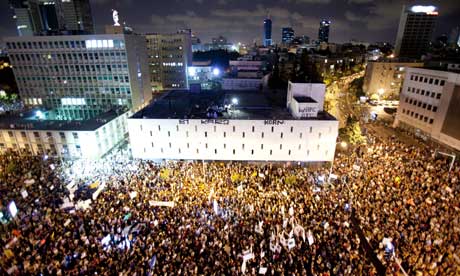Oppressed Peoples Online Word...The Voice Of The Voiceless
Dedicated to disseminating news & information not found in mainstream media....
BEIRUT - Amidst the many scenarios for Syria are two widely discussed possibilities: that President Bashar Assad

The violent end of the Assad regime in Syria will give the citizens of that country the opportunity to configure their country’s institutions of governance according to their own values, identities and priorities, as Tunisia, Egypt, Yemen and Libya have started to do, says Rami G. Khour
would respond to his imminent collapse by retreating with his Alawite compatriots into the mini-state of Alawistan in the northwestern coastal mountains, and that Syria would fragment into a series of smaller entities based on ethnicity and religion (Kurds, Druze, Alawites, Sunnis, Christians, etc.). I suspect that both of these dire expectations are wrong, though each carries within it a hint of what is possible, not only for Syria, but also for much of the Arab world. In between the centralized police and welfare state and a collapse into fragmented ethnic statelets may be a more feasible and appropriate third way that is based on strong decentralization of regional power and identity within a looser national superstructure.
This might be an appropriate governance model for much of the Arab world, whose own citizens have never had the opportunity to shape their countries’ borders, values or policies. I am assuming that many of the Arab world’s troubles reflect a critical lack of legitimacy and natural cohesion, which has allowed so many states to fall into the hands of individuals and families that passed on rule as a personal inheritance, regardless of the will of the citizenry (Hafez Assad, Saddam Hussein, Ali Abdulla Saleh, Moammar Gadhafi, Omar Hassan Bashir, a dozen Lebanese families, the Egyptian armed forces, and a handful of monarchies). This chronic autocracy led to many other deficiencies and distortions that have defined our countries for generations, including exaggerated militarism, economic frailty, recurring political violence, profound national vulnerability, corruption, lack of citizen participation in public life, and mass pauperization in the non-oil-producing states.
Syria is a perfect example of all that ails the modern Arab world, and it is no surprise that it is now its turn to offer us pictures of tanks and jet fighters bombing civilian quarters of ancient cities, as the central government’s authority over the land shrinks. In Syria and elsewhere, the past century of Arab statehood has been a tale of state birth and formation in the early decades, rapid socio-economic development in the middle of the last century, then the start of a downward cycle in the 1970s that included oil-fuelled massive distortions, consolidation of security- and family-dominated leaderships for life, and recurring wars and civil strife, which involved domestic forces, regional states and foreign powers alike.
The violent end of the Assad regime in Syria will give the citizens of that country the opportunity to configure their country’s institutions of governance according to their own values, identities and priorities, as Tunisia, Egypt, Yemen and Libya have started to do. This process of national self-determination usually occurs when states are born, not a century later, though this is one of the peculiarities of modern Arab history, with its colonial heritage and the stultifying impacts of the Arab-Israeli conflict, the oil boom and the Cold War.
In many ways, current events in Syria and the Arab region are a delayed correction to the largely imposed Arab state order that emerged around a century ago, right after World War One. This modern Arab state system has had a very rickety record in terms of both national coherence and wellbeing. Quite a few Arab states have had severe cohesion problems, which reflect the underlying lack of legitimacy and consensus about the shape and role of the state. Yemen has split into two and reunited several times; Kuwait disappeared briefly into the belly of a predatory Iraq, and then resurfaced; Sudan peacefully split into two countries, and still suffers severe internal stresses; Iraq is now very loosely held together as an informal confederation rather than a strong single state; Lebanon has always been deeply decentralized in terms of shared political power, leaving the central government weak; Oman suffered a major rebellion a few decades ago and Morocco still grapples with the Sahrawi demands for independence in the Western Sahara; Somalia’s northern region seceded, and the central government collapsed and has not ruled the entire country for decades; Jordan lost its West Bank portion and still suffers significant internal political tensions between Jordanians and Palestinians; and across Algeria, Morocco and parts of North Africa, the Amazigh people integrate uncomfortably into larger Arab states.
There is nothing new about individual Arab countries being susceptible to centrifugal forces that can lead to the collapse or adjustment of the central state, and the emergence of smaller entities based on ethnic, religious or tribal identities. We are likely to see healthier, more stable Arab countries if more decentralized systems of statehood are implemented. For these to have legitimacy and stability, though, they need to be defined by the will of their citizens, rather than by foreign armies or retreating local warlords, as has been the case for the past century.
Rami G. Khouri is Editor-at-large of The Daily Star, and Director of the Issam Fares Institute for Public Policy and International Affairs at the American University of Beirut, in Beirut, Lebanon.
Copyright © 2012 Rami G. Khouri - distributed by Agence Global
T.E.A.M... TOGETHER EVERYONE ACHIEVES MORE
Donate To Zakat U.S.A. Donations Tax Deductable
Save more lives with 2.5
**************************************************************************************************************************************
Views: 36
Comment
© 2026 Created by Bilal Mahmud المكافح المخلص.
Powered by
![]()

You need to be a member of Oppressed Peoples Online Word...The Voice Of The Voiceless to add comments!
Join Oppressed Peoples Online Word...The Voice Of The Voiceless